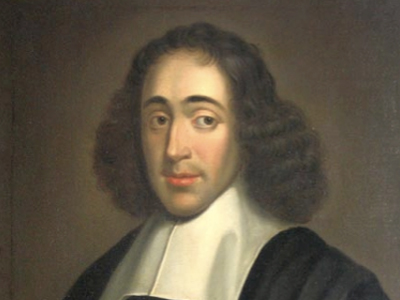July 27, 1656
Baruch Spinoza, whose publicly expressed views on Judaism offend his fellow Jews in Amsterdam, is excommunicated by the city’s Jewish community after refusing to take a stipend in return for his silence when he is called before the communal leadership. The community declares, “Nobody should communicate with him orally or in writing or show him any favor.”
Spinoza was born in Amsterdam on November 24, 1632, to conversos (Jews who had publicly converted to Christianity but continued to practice Judaism in secret). He received a traditional Jewish education and was being groomed for a career as a rabbi when he abandoned his studies to work in his family’s importing business.
The offensive views he expresses as an adult include questioning the divine origin of the Torah, denying the immortality of the soul and rejecting a providential God.
Spinoza goes on to become one of the most important philosophers of the Enlightenment.
Jewish Enlightenment thinkers seek to reconcile the world of Jewish faith with secular, empirical reality. Spinoza’s critique of both God and the origins of the Torah are at the heart of the Jewish Enlightenment, or Haskalah, as is his best-known work, “Ethics,” in which he asserts that everything in the universe comes from a single substance, which he calls God/nature.
The European Enlightenment over the next two centuries increases civil and political rights for Jews but, if anything, spurs an increase in antisemitism.









